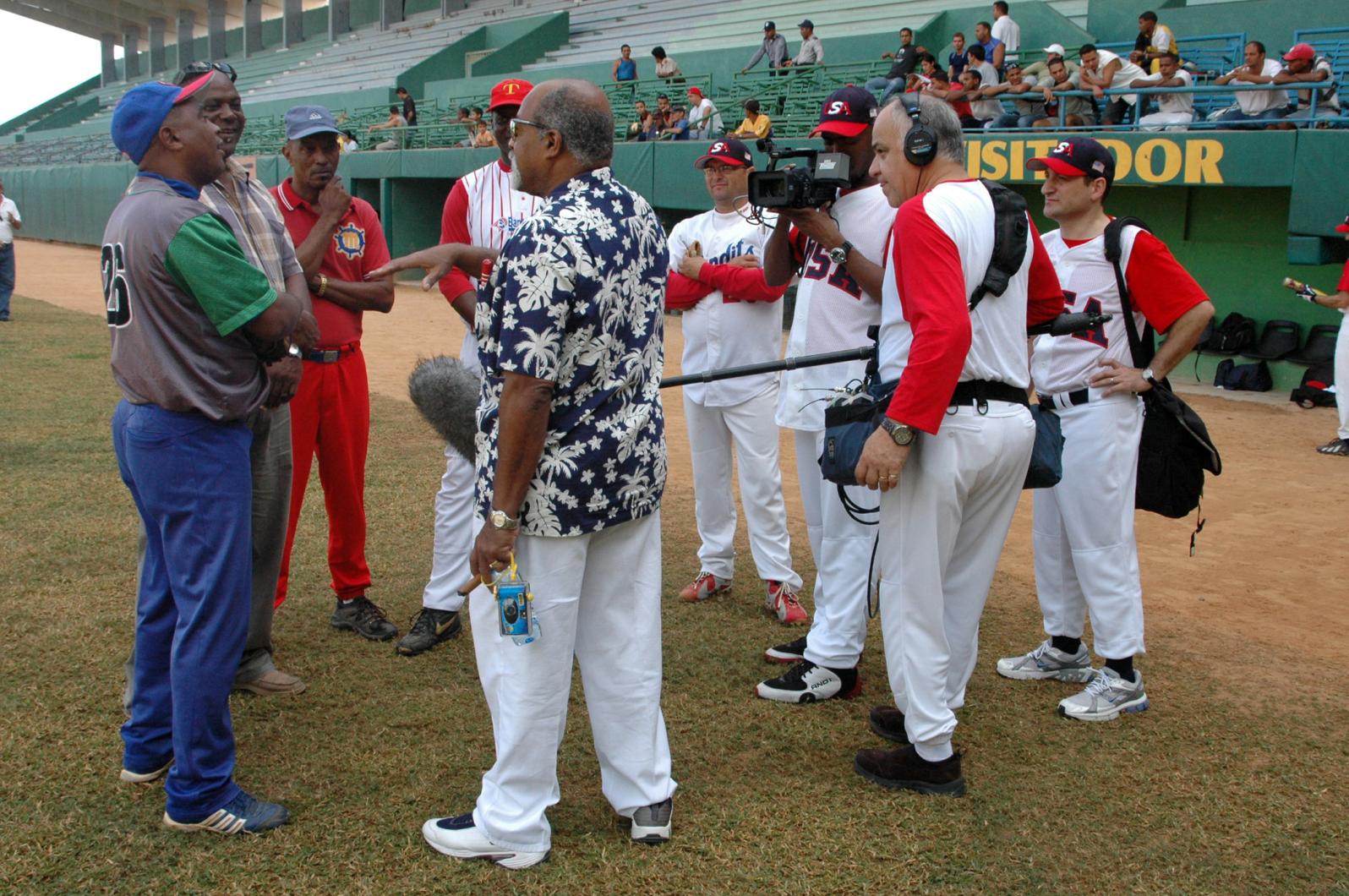As part of the deal to get into Cuba to make his movie, producer Kris Meyer had to take part in a baseball game, an all-ages, goodwill game with a Cuban team in Cuba.
He did not play well.
“The gentleman that struck me out was 75,” he told a packed house after the screening of The Lost Son of Havana, the story of Luis Tiant, at the Chilmark Community Center on Wednesday night.
He was crushed too, in left field, when he lost sight of a catch — “It went so high” — and it landed at his feet.
“And all these Cuban kids in broken English, right in front of me, they say ‘You suck.’ I say ‘I know.’ ”
Prior to that game, Kris Meyer reckons he hadn’t played since he was seven. Yet here he was in Cuba, making a documentary about one of baseball’s great pitchers,
Now the point of this story is that so many people who write books or make movies and documentaries about sporting figures do it because they are in the thrall of a sport, and the subject is an exemplar of that sport.
But this movie is not like that. Much as Mr. Meyer is a fan of the game, his aim was not to make a baseball movie. Indeed the idea arose through a conversation that had nothing to do with baseball, except circumstantially.
“I met Luis through a mutual friend,” Mr. Meyer said after Wednesday night’s screening.
“We talked and he told me he wanted to go home. To Cuba. He said it had been 46 years. He said: ‘I want to go home before I die.’ ”
And so Mr. Meyer, a producer for 11 years with the Farrelly brothers, hatched a plan to take Mr. Tiant back, and to record the homecoming. He pitched it; they liked it.
It took two years before they finally got there — Mr. Tiant, Mr. Meyer and five others, including Bobby Farrelly, and director Jonathan Hock — for just a week.
And they did it under the auspices of a goodwill baseball tour. They played four ball games in all, but that was the least of the cultural exchange.
Inevitably, there is a fair amount of baseball in the movie — two generations of it, in fact. Like his father before him, Mr. Tiant left Cuba for America to play ball. There’s some wonderful archival footage of big games in America, and some wonderful contemporary footage of small games in Cuba (rendered archival by the use of flickery 8mm camera work). The great moments of Luis junior’s career are there: his brilliance, his injury, his resurrection as a truly great pitcher.
But the story is much more about their dignity in adversity than about their stats.
Luis Tiant Senior had the racist misfortune to be a little too dark and was relegated to the Negro leagues. Luis Tiant Junior had the Cold War misfortune to be forced to choose between his parents, friends and family in Cuba and a life of exile in the big league in America.
The father who went back, and then told his son not to. The son who didn’t go back, but eventually got his elderly parents out. Mr. Tiant’s eventual return after his parents’ death, the regrets and reconciliation. There’s a lot of Cuba in there too, and the generosity of spirit of materially poor people.
It makes for a wonderfully warm documentary.
It is perhaps a compliment to the movie that after Wednesday night’s film festival screening, when it was time for audience members to ask questions of Mr. Meyer, the questions were about things other than baseball.
Like how the filmmakers captured the scene without being intrusive.
Answer: If you stay reasonably still in a smallish room packed with 40 or so friends and relatives, you can be pretty invisible, even with a camera.
Like the social circumstances in Cuba.
Answer: People are desperately poor, but remarkably resilient and even happy.
Like what Mr. Tiant did now.
Answer: He’s a consultant, an ambassador for the Red Sox, and helps with the pitching staff.
Like whether Mr. Tiant had been able to maintain contact since his return.
Answer: Yes, and because President Obama eased the embargo, he can send aid parcels.
Like whether Mr. Tiant has gone back again since the one-week trip for the movie.
Answer: “No, but I hope to go when he does.”
Not that Mr. Meyer wants to do a sequel or anything.
“No,” he said, “I’d just like to go back and hang with them. Every waking minute we were there, we were working. I’d just like to spend more time with Luis, in the place, and get to know them better.”
There was not a spare seat at the one on-Island showing. But those who missed out might catch it August 10 on ESPN. And the DVD is due for release in early September.




Comments
Comment policy »